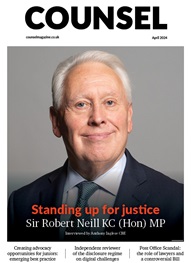*/
Housing – Homeless person. The appellants had all applied for accommodation on the basis that they were in priority need, under s 189(1)(c) of the Housing Act 1996. Their applications were refused and the appellants were unsuccessful before the Court of Appeal. The Supreme Court held, inter alia, that, in order to decide whether an applicant fell within s 189(1)(c) of the Act, an authority or reviewing officer should compare him with an ordinary person if made homeless, not an ordinary actual homeless person. Further, when deciding if an applicant was 'vulnerable', one had to take into account such services and support that would be available to him he were homeless. It did not matter, at least in principle, whether the support was provided pursuant to a legal obligation. However, the question whether there was a legal obligation on the third party to provide the support could sometimes be relevant, in that it might be said to be intrinsically more likely that a person would continue to provide support if he had a legal obligation to do so.
Housing – Homeless person. The appellants had all applied for accommodation on the basis that they were in priority need, under s 189(1)(c) of the Housing Act 1996. Their applications were refused and the appellants were unsuccessful before the Court of Appeal. The Supreme Court held, inter alia, that, in order to decide whether an applicant fell within s 189(1)(c) of the Act, an authority or reviewing officer should compare him with an ordinary person if made homeless, not an ordinary actual homeless person. Further, when deciding if an applicant was 'vulnerable', one had to take into account such services and support that would be available to him he were homeless. It did not matter, at least in principle, whether the support was provided pursuant to a legal obligation. However, the question whether there was a legal obligation on the third party to provide the support could sometimes be relevant, in that it might be said to be intrinsically more likely that a person would continue to provide support if he had a legal obligation to do so.


Sam Townend KC explains the Bar Council’s efforts towards ensuring a bright future for the profession
Giovanni D’Avola explores the issue of over-citation of unreported cases and the ‘added value’ elements of a law report
Louise Crush explores the key points and opportunities for tax efficiency
Westgate Wealth Management Ltd is a Partner Practice of FTSE 100 company St. James’s Place – one of the top UK Wealth Management firms. We offer a holistic service of distinct quality, integrity, and excellence with the aim to build a professional and valuable relationship with our clients, helping to provide them with security now, prosperity in the future and the highest standard of service in all of our dealings.
Is now the time to review your financial position, having reached a career milestone? asks Louise Crush
If you were to host a dinner party with 10 guests, and you asked them to explain what financial planning is and how it differs to financial advice, you’d receive 10 different answers. The variety of answers highlights the ongoing need to clarify and promote the value of financial planning.
Most of us like to think we would risk our career in order to meet our ethical obligations, so why have so many lawyers failed to hold the line? asks Flora Page
If your current practice environment is bringing you down, seek a new one. However daunting the change, it will be worth it, says Anon Barrister
Creating advocacy opportunities for juniors is now the expectation but not always easy to put into effect. Tom Mitcheson KC distils developing best practice from the Patents Court initiative already bearing fruit
Sam Townend KC explains the Bar Council’s efforts towards ensuring a bright future for the profession
The long-running fee-paid judicial pensions saga continues. The current cut-off date for giving notice of election to join FPJPS is 31 March 2024, and that date now gives rise to a serious problem, warns HH John Platt